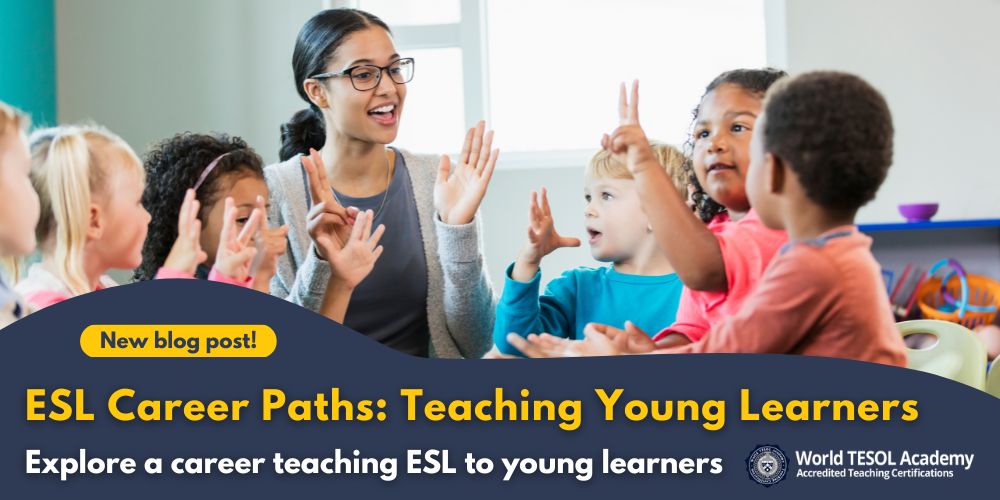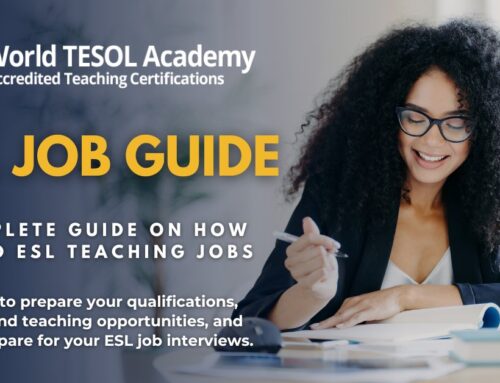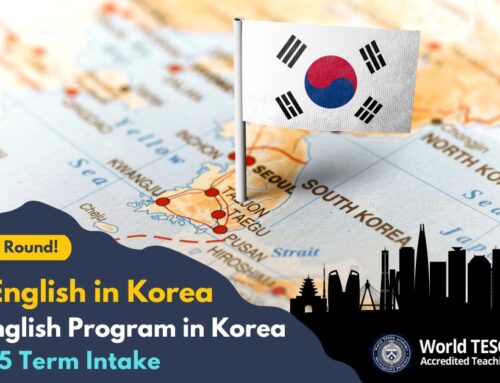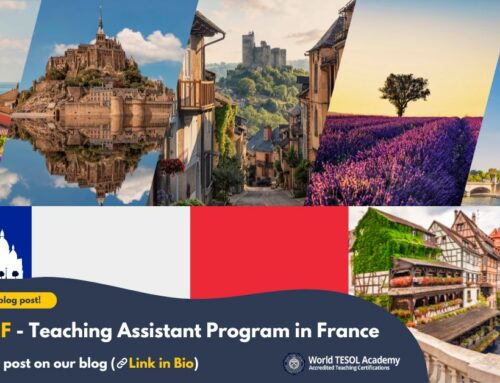ESL Career Paths: Teaching Young Learners
A significant portion of the ESL industry focuses on teaching young learners. To effectively teach children, ESL teachers must possess unique skills to keep students engaged and make learning fun.
Teaching young learners is one of the most dynamic and rewarding niches within the ESL field. Children are natural learners, with a remarkable ability to absorb new languages at a young age. However, teaching them requires more than just language proficiency—it calls for creativity, patience, and specialized techniques to maintain their interest and motivation throughout the learning process.
As an ESL teacher, you have the unique opportunity to shape young minds by introducing them to a new language, helping to build a foundation that will support their academic and personal growth for years to come.
Let’s take a closer look at why you should consider pursuing a career as a young learner specialist teacher.
What is TEYL (Teaching English to Young Learners)?
Teaching English to Young Learners (TEYL) is one of the most popular niches within the ESL teaching field. It involves teaching children, typically aged 3 to 12, in foundational English language skills.
TEYL teachers use interactive and age-appropriate methods like songs, games, and storytelling to help their students build a strong foundation in listening, speaking, reading, and writing. These tailored methods are not only great for engaging children, but they also support their cognitive and linguistic development, making the learning experience both effective and enjoyable.

Why specialize in teaching young learners?
While teaching any age group can be rewarding in its own way, specializing in teaching young learners offers unique benefits that can enhance your teaching career and personal fulfillment.
📈 High demand and job stability
Young learners make up a significant portion of ESL students worldwide. This is largely due to many countries prioritizing early English education, creating a strong and steady demand for skilled English teachers (both local and foreign).
This demand is reflected in a wide range of job opportunities, both online and across various countries, particularly in regions where English is introduced early in the school curriculum.
🏫 Diverse opportunities
Specializing in teaching young learners allows you to work in a variety of educational environments, from kindergartens to primary schools and language academies. In addition to traditional classroom teaching, there are also numerous opportunities to teach on online platforms specifically designed for tutoring children.
There is also a growing global demand for private tutors who can offer personalized instruction to young learners. This can be a lucrative option, providing flexibility and the opportunity to work closely with individual students. Having access to diverse opportunities enables ESL teachers to build a more flexible and varied teaching career.
💼 Career advancement
Educational organizations often seek experts with specialized knowledge in teaching young learners to help develop age-appropriate content, manage programs, or oversee training for other teachers. As you gain experience in the TEYL field, you’ll have the opportunity to branch out into various roles beyond the classroom.
TEYL teachers with advanced expertise can explore careers as curriculum designers, educational consultants, or teacher trainers.
💵 Higher earning potential
Thanks to the specialized nature of teaching young learners and the high demand for skilled teachers, those with specialist certification and training can often command higher salaries, particularly in international schools, private tutoring, or online teaching platforms. Employers are willing to invest more in teachers who bring this specialized knowledge to the classroom.

Key skills for teaching young learners
Teaching young learners (TEYL) requires more than just an understanding of the English language. It demands specialized skills that allow you to engage and support students on their language journey.
ESL employers focusing on young learners generally seek teachers who possess specialist knowledge of how children develop cognitively, how they acquire language skills, and how to implement age-appropriate teaching techniques and assessment methods.
Let’s take a look at some of the key aspects TEYL teachers should be knowledgeable about:
🧠 Understanding child psychology
Children acquire language differently from teens and adults, and even among young learners, there are distinct developmental stages that affect how they learn. To effectively teach young learners, teachers should be knowledgeable about:
How children develop language skills: Understanding how children naturally acquire their first (L1) and second (L2) languages helps TEYL teachers design lessons that align with young learners’ cognitive processes. This knowledge ensures lessons are structured to support language development at every stage.
Age-appropriate teaching methods: Tailoring your teaching techniques to different age groups is also essential. For example, younger children benefit from simple, concrete language and visuals, while older children can be encouraged to express themselves verbally and creatively.
📚 Lesson planning for young learners
Successful lesson planning for young learners focuses on creating lessons that are engaging, interactive, and tailored to their developmental stages. When teaching young learners, you should be able to:
Design tailored lessons: TEYL teachers should create fun, educational activities using stories, songs, games, and hands-on projects to keep young learners engaged and actively participating in the learning process. These activities should be adapted for various age groups to ensure they are appropriate for their level of understanding and attention span.
Use scaffolded learning: Lessons should build on prior knowledge and gradually introduce new concepts. This approach helps children reinforce what they’ve learned while progressing to more complex language skills.
🧒 Child-centered teaching strategies
Young learners generally require more support and flexibility in how they are taught. TEYL trained teachers are expected to know how to use specialized child-centered teaching strategies that prioritize the unique needs of each student, such as:
Differentiated instruction: Tailoring activities to support various learning styles ensures that all students are supported. Whether it’s adapting lessons for visual, auditory, or kinesthetic learners, TEYL teachers should modify instruction to cater to the individual needs of their students.
Active learning:Incorporating teaching strategies like Total Physical Response (TPR), which combines language learning with physical movement, keeps young learners engaged and helps them absorb new information more effectively. Physical activities make lessons more memorable and fun for young learners.
🖼️ Use of visual aids and props
Visual aids and props are essential in helping young learners grasp abstract language concepts. TEYL teachers should know how to integrate these effectively by using variety teaching tools like:
Visual learning tools: Flashcards, charts, real-life objects (realia), and other visual aids help make complex ideas more understandable for young learners. Using these tools regularly reinforces learning and retention.
Interactive engagement tools: Incorporating tools like whiteboards, interactive apps, and educational videos adds variety to lessons and enhances the learning experience. These tools not only engage students but also support different learning preferences.
👏 Effective management strategies
Managing a classroom full of energetic young learners can be one of the most challenging yet rewarding aspects of teaching. Knowing how to create a well-structured, positive learning environment is crucial for effective teaching. To make this possibile, you are expected to know how to use strategies like:
Positive reinforcement: TEYL teachers should employ positive reinforcement strategies to encourage good behavior and motivate students. Techniques like BSP (Behavior-Specific Praise) and reward systems can help maintain order and foster a positive learning atmosphere.
Setting clear expectations: Establishing clear behavioral expectations helps young learners understand boundaries and encourages self-discipline. By implementing consistent classroom rules, students are able to learn in a safe, supported, and motivating learning environment, which is essential for effective learning.
📝 Age-appropriate assessment
Assessing young learners requires different strategies than those used with older students. The key is to make assessments engaging and constructive by using strategies like:
Formative assessments: Continuous, informal assessments help monitor students’ progress and provide insights into areas where they need additional support. This can include observing classroom participation, administering short quizzes, or conducting interactive group activities.
Incorporating self-assessment: Involving young learners in assessing their own progress encourages self-awareness and responsibility. Simple techniques, such as asking students to rate their understanding or reflect on what they’ve learned, help build confidence and promote active engagement in their learning journey.
By understanding how children develop language skills, and how to apply age-appropriate teaching techniques and creative lesson planning, you will be able to build a strong foundation for a rewarding career teaching young learners.

How to pursue this niche
So how does one pursue this teaching niche? While a 120-hour TESOL/TEFL course provides a solid foundation and the essential skills needed to start teaching students of various ages, pursuing a specialist certification on top of this is an effective way to further boost your qualifications and access better job opportunities.
Specialized TEYL training
If you’re specifically interested in developing the skills needed to teach young learners, the most popular approach is to complete a specialist certification course, such as a 60-hour TEYL (Teaching English to Young Learners) course. This type of advanced course will help you refine the essential skills mentioned earlier, while also teaching you new skills that are crucial for success in a TEYL classroom.
While it’s certainly possible to start teaching young learners with a 120-hour TESOL/TEFL certificate, obtaining a TEYL certificate is a highly effective way to show employers that you have the specialized training and knowledge needed to plan and deliver engaging, effective lessons for young learners.
It’s also a great way to gain a competitive advantage on the ESL job market, and stand out from the competition.
Getting your 60-hour TEYL certificate: To successfully venture into specialized niche markets within the ESL industry, it’s essential to first obtain the necessary training and certification.
After obtaining your foundational TESOL/TEFL certificate, a popular career progression is to explore specialist skills certification courses, such as our 60-hour TEYL (Teaching English to Young Learners) course. This type of course will help prepare you for a career as a specialist ESL teacher for young learners.
If you’re ready to take the next step in your teaching career, consider enrolling in our accredited TEYL specialist certification course:
.
💡Bonus tips:
To further enhance your career prospects as a TEYL teacher, there are several additional options you can explore beyond obtaining your 120-hour TESOL/TEFL and 60-hour TEYL certificates.
📃Additional certifications: Consider gaining supplementary qualifications, such as child protection and safeguarding, pediatric first aid and CPR, health and hygiene, emergency procedures, and allergy and anaphylaxis management. These certifications can help demonstrate your commitment to maintaining a safe learning environment.
🎓 Continuous professional development: Stay up to date with the latest teaching strategies and technologies by attending workshops, webinars, and conferences focused on ESL teaching and early childhood education. Continuous learning ensures you’re equipped to meet evolving educational requirements and keep your teaching methods fresh.
🤝 Professional networking: Connecting with other education professionals is a great way to gain inspiration, share tips, and access more job opportunities.
📁 Create a portfolio: Organizing lesson plans, teaching materials, and activities helps you build a versatile professional portfolio. This toolkit is useful for quick lesson planning or adapting to your learners’ needs. A well-structured portfolio can help showcase your experience, which can lead to roles in curriculum development or instructional design.
Final thoughts
Specializing in teaching young learners is a rewarding career path with high job demand, diverse opportunities, and the chance to make a lasting impact on future generations. By developing the right skills and obtaining relevant qualifications like a TEYL certificate, you can position yourself as a sought-after expert in this field.
If you’re ready to take the next step in your teaching career, consider enrolling in a TEYL certification course today!
🔎 60-hour TEYL Preview: If you’re interested to learn more about what skills you’ll develop in a TEYL specialist skills course, feel free to take a free preview of our 60-hour TEYL course.
🧑🏫 ESL Niche Markets: To explore other specialist niches within the ESL teaching field, check out our article on Niche Markets for ESL Teaching.





Leave A Comment